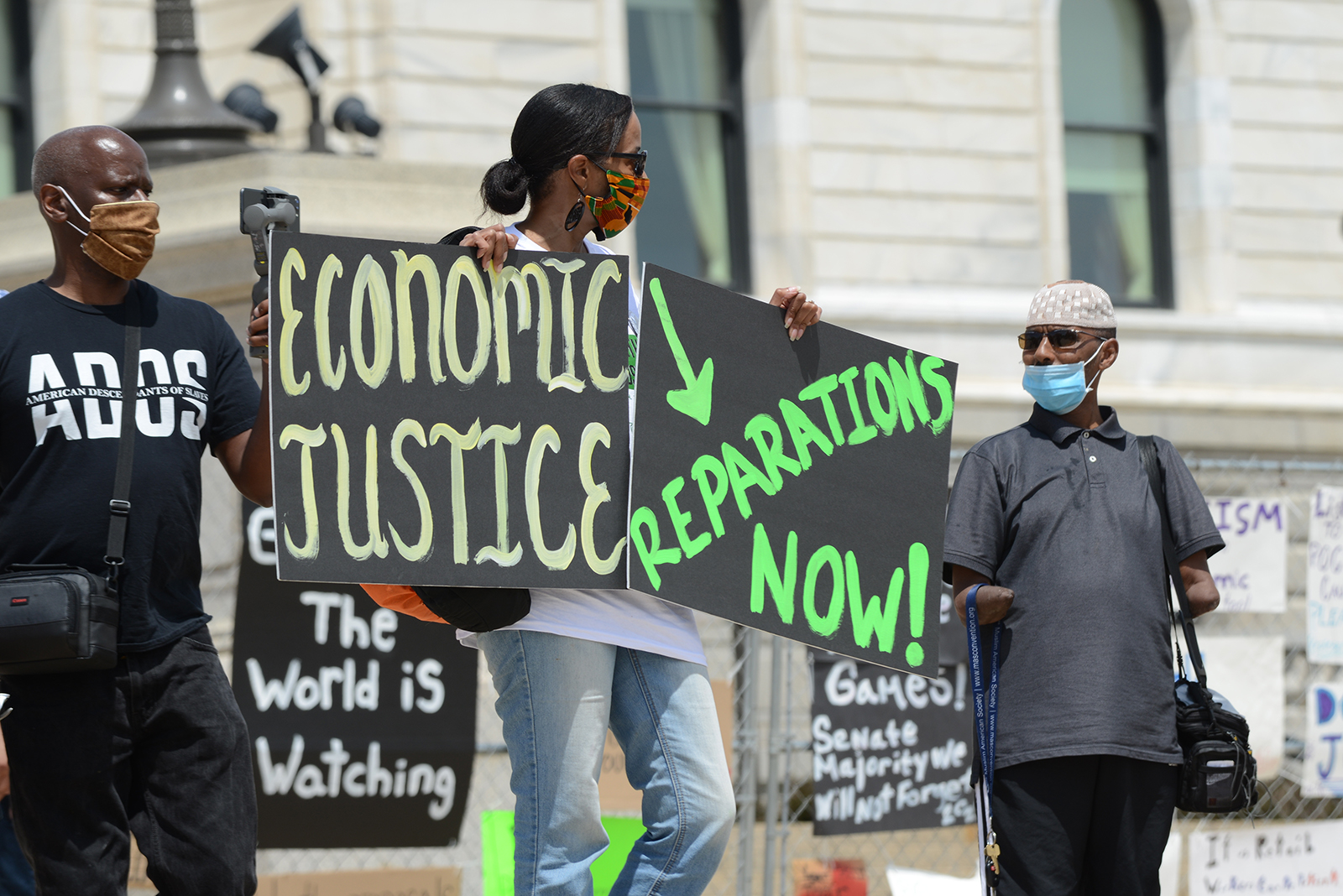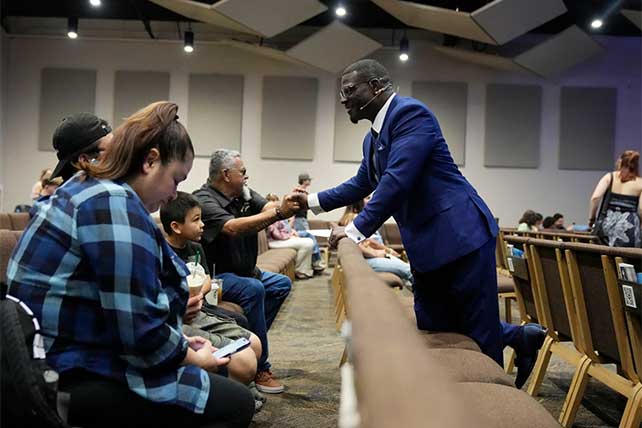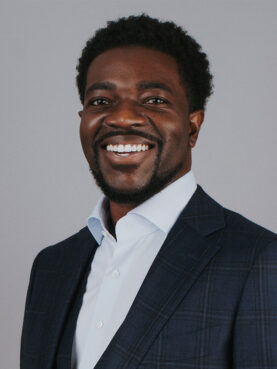(RNS) — The long campaign for reparations for slavery in the United States has taken numerous forms.
Members of Congress have supported a commission to study the matter.
A panel in California recently made a formal proposal to the state’s legislature detailing how to provide African Americans with payments of up to $1.2 million. The city of Evanston, Illinois, just north of Chicago, has started paying stipends to Black residents to be used to buy or improve homes.
Last month, nearly 30 faith and human rights groups, including the Presbyterian Church USA, the Union for Reform Judaism and the United Church of Christ’s social justice ministry, sent a letter to President Biden seeking an executive order to move the debate along.
RELATED: Harvard, National Council of Churches, Reform Jews Seeking Reparations Blueprint
The National Council of Churches, which recently spearheaded a letter to President Joe Biden, is trying a new tactic: a six-week Bible study.
The Rev. Stephen A. Green. Photo courtesy National Council of Churches
“We think a Bible study would be another mechanism, another resource to educate parishioners in many of our member communions on the issue of reparative justice,” said the Rev. Stephen A. Green, the NCC’s civic engagement and outreach consultant, “and to use that as a way to continue to galvanize public support to encourage President Biden to issue an executive order on reparative justice.”
The Bible study, set to begin via the NCC’s YouTube channel on Tuesday (June 13) as a model for future in-person use, is one suggestion submitted in a report put together by students at Harvard University’s Kennedy School and divinity school, working with NCC and Union for Reform Judaism representatives.
The “Reparative Justice Bible Study” explains different types of reparations as well as H.R. 40, the legislation first proposed in 1989 to study and explore reparations as a response to “the vestiges of slavery and racial injustice.” The study plan also offers ideas such as asking “And who is my neighbor?” and describing the “ethic of restitution.”
“The case for restitution and restoration is laid out across the Old Testament and New Testament,” reads the study’s introduction. “The purpose of this 40-day Bible Study is to educate our communities on the topic of reparations using the scriptures and provide resources to take action on the consideration of reparations for Black Americans.”
Suggestions for additional reading include “Letter from Birmingham Jail” by the Rev. Martin Luther King Jr. and articles by journalist and reparations advocate Ta-Nehisi Coates and the Rev. Kelly Brown Douglas, a theologian and retired dean of the Episcopal Divinity School at Union Theological Seminary. Scriptures include the parable of the Good Samaritan and Jesus’ Beatitudes, which begin with “Blessed are the poor in spirit, for theirs is the kingdom of heaven.”
On Juneteenth, the newest federal holiday that adopts a longstanding celebration of the effective end of slavery in 1865, the NCC will gather some 400 faith leaders for a march in Washington, starting at the Martin Luther King Jr. Memorial and marching to Lafayette Square across from the White House.

People demonstrate outside the Minnesota capitol building on Juneteenth to demand reparations from the United States government for years of slavery, Jim Crow, segregation, redlining, and violence against black people from police, on June 19, 2020, in St. Paul, Minnesota. Photo by Fibonacci Blue/Creative Commons
The march caps a week of activities that are set to include a day when the NCC is encouraging congregations to hold “read-ins” at their churches and urging people to photograph themselves “holding their favorite book or banned book by an African American author,” according to the organization’s website.
Yolanda Savage-Narva, the URJ’s official addressing racial equity, diversity and inclusion, said she plans to attend the Justice on Juneteenth March to show solidarity with Christian leaders.
“It’s important for me to be there to represent as a Black woman,” she said. “It’s also important for me to be there as someone who is Jewish because I’m also representing the Jewish community and its support for this as well.”
The Harvard students’ report contains other long-term ideas for acknowledging and planning for resistance to reparations.


